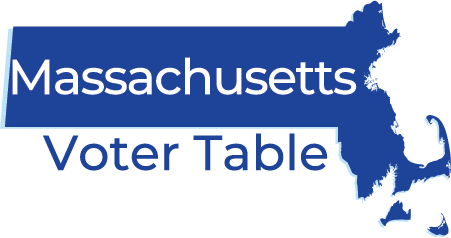The voting rights package currently being hashed out by Massachusetts lawmakers is a thing of beauty. But it is missing a critical piece.
What it leaves out says a lot about who still holds power on Beacon Hill, and how they keep it. Voters are supposed to choose their lawmakers. But some of those lawmakers clearly want it to work the other way round. Worse, their intransigence may delay the bill long enough to make it harder to cast ballots this year.
Before we get to that unseemly state of affairs, the beauty part. Both the House and the Senate have passed versions of the VOTES Act that would make voting easier than ever in this state. Among the measures they agree on: expanding opportunities for absentee, mail-in, and early voting; shortening voter registration deadlines from 20 days before an election to 10 days; and easing ballot access for incarcerated people and those with disabilities.
So far, so delightful. But a measure the Senate overwhelmingly approved never made it into the House version of the law: It would allow people to show up at their polling places, get on the voter rolls right there on the spot, and cast their ballots.
This isn’t some outlandish proposal: It is immensely popular with voters. Twenty states and D.C. already offer it. Studies show that same-day registration boosts voter turnout, especially among younger voters, people of color, and low-income people, according to Demos, a progressive think tank.
Who wouldn’t want that?
Assistant majority leader Mike Moran, that’s who.
In January, when Representative Nika Elugardo of Boston offered an amendment to add Election Day registration to the House bill, Moran, a Brighton Democrat, used a parliamentary trick to nix it, sending the issue off to Secretary of State Bill Galvin to study. Moran and his lackeys provided a range of bogus justifications for doing so.
Chiefly, they said they were concerned for city clerks across the Commonwealth, who would be overwhelmed by Election Day registrations. But the clerks, ahem, came out in support of Election Day registration.
And the guy who actually runs elections in this state has supported it for several years, and wants no part of a study.
“We never asked for a study,” Galvin said in an interview, “nor was a study ever necessary. ... This was a parliamentary tactic, not a sincere effort.”
Galvin is confident the Commonwealth’s clerks can make Election Day registration work smoothly, and do the work they’re meant to: “Helping people to vote rather than spending the day trying to tell them why they can’t.”
So what’s up with Moran, whom Galvin calls “the main obstacle” here?
His office did not respond to my calls, but the answer is plain if you look at his district, which, coincidentally, Galvin once represented: Allston and Brighton have giant tenant populations, students and others who move in and out each year — just the kind of transient voters more likely to take advantage of Election Day registration.
No legislator likes that kind of unpredictability: They want to know who will show up at the polls year after year, whose interests they should keep in mind, who they can count on.
“Some lawmakers think they need to be the gatekeeper, to choose their voters,” said Beth Huang, head of Massachusetts Voter Table, a civic advocacy group. “Everything about this reflects how power is weighted against people who are more transient, younger, low-income, and often Black and brown.”
Senate and House negotiators trying to come up with a compromise version of the VOTES Act are stuck on Election Day registration. After more than two months of stasis, they are finally meeting on Thursday to hash out their differences, though there’s no obvious sign Moran is willing to budge.
Meanwhile, the stalemate over Election Day registration delays other reforms set to go into effect this year, Galvin said — including mail-in voting, which requires months of preparation to make work. “Every extra day puts that at risk,” he said.
If a final version of the VOTES Act is not signed into law soon, it will be too late to make mail-in voting happen for the Sept. 6 primary.
We’re about to see how much democracy some leaders are willing to sacrifice on the altar of incumbency.
Globe columnist Yvonne Abraham can be reached at yvonne.abraham@globe.com. Follow her on Twitter @GlobeAbraham.
